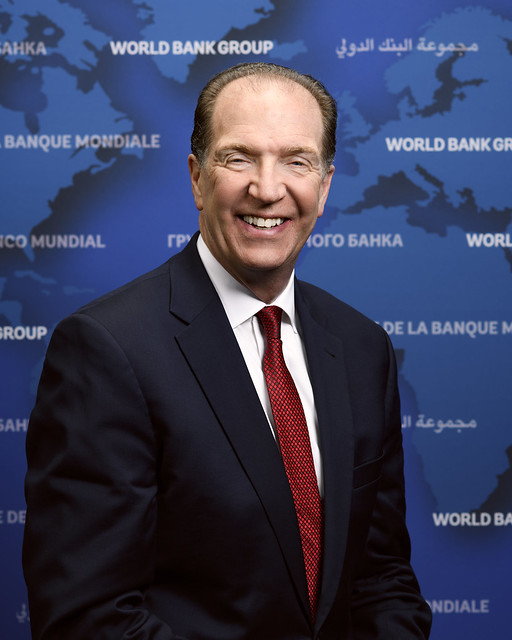Ahead of next week’s opening of the Spring Meetings of the World Bank Group and the International Monetary Fund next week, World Bank Group President David Malpass, on Tuesday drew the attention of global economic leaders to the overlapping crises confronting the globe on several fronts, especially in poor and low income countries including Nigeria and most African nations, in need of action.
Speaking on “addressing the challenges of growth, security and stability- scene-setter,” Malpass the unholy combination of currency depreciations, and inflation hitting the poor hard, resulting in heightening poverty rates.
Trends on the economic front, he lamented, are not encouraging, recalling that before the war in Ukraine, the recovery in 2022 was already losing momentum due to the rising inflation and lingering supply bottlenecks, amid expectation that advanced economies would return almost to their pre-pandemic growth rates in 2023, and developing economies were lagging substantially behind.
The war in Ukraine and the COVID-19 lockdowns in China, he stressed, are further reducing the recovery path, with such repercussions as worsening inequality given the impact of the war on commodity and financial markets, trade, and migration linkages, and investor and consumer confidence.
While advanced economies with well-developed social protection systems are successfully cushioning parts of their populations from the damage from inflation and trade blockages, “poorer countries have limited fiscal resources and weaker systems to support those in need.”
Added to the burden, he said, is the fact that “developing country debt has risen sharply to a 50-year high—at roughly 250% of government revenues. Debt vulnerabilities are particularly acute in low-income countries, where 60 percent are already experiencing or at high risk of debt distress.”
Unfortunately, he continued, “most emerging market and developing economies are ill-prepared to face the coming debt shock. Exposures to financial sector risk are opaque at this point, but one measure, the cost of insuring against default in emerging markets, has reached its highest point since the onset of the pandemic.”
The World Bank Group, he stressed, has the comparative advantage of being able to “share good practices, working closely with governments, civil society, and the private sector. You should count on us, as we count on you to support innovative approaches to the front lines of development. It is here that we can win the battles against the multiple crises we are facing. I want to thank you all very much.”
As a first step, Malpass called for an effective capital allocation to check “the problem of inequality and severe concentration of wealth in narrow segments of the global population is worsening.
“Trillions of dollars of debt and capital are being guided by advanced governments to over-capitalized sectors, harming growth, supply chains, jobs, and median incomes. The result is deepening inequality through the massive misallocation of global capital away from small businesses, working capital and development.”
He called on the governments and central banks of “advanced economies to alter fiscal, monetary, and financial regulatory policies that are concentrating wealth and income, misallocating capital, and fueling inflation.”
The World Bank Group President called for promotion of growth and production¸as a primary path for global recovery by creating “policies, financing, and innovation that invite investment inflows, allow the investment base to broaden, and encourage production to increase. This defines an effective response to shortages and high prices. Decentralized allocation of capital and policies that foster currency stability are key ingredients. Recent currency depreciations and the slide into multiple exchange rates are strong reminders that sound monetary and fiscal policies are vital.
“Importantly, we need to redouble our growth efforts on public and private sector solutions that provide clean water, dependable electricity, sustainable agriculture, quality education, health emergency preparedness, and digital access,” he stressed.
He called for large increases in diversified energy production, as countries also release the most binding restrictions on their imports and exports, as an important step in shortening the crisis and strengthening the recovery.
Most of the trade barriers, he noted, “protect the privileged at the expense of the rest of society, worsening inequality. This includes quotas, high tariff rates, high export taxes, and subsidies that distort trade. Each of these causes asymmetrical damage to the poor – from rice, peanut, and sugar import quotas; to costly production subsidies for cotton and ethanol; to domestic content requirements that undercut productivity.
He also called for “a steadfast commitment to security and stability. Durable peace takes constant effort to strengthen institutions, reduce inequality, raise living standards, and provide defenses. In the alternative, security crises trigger massive increases in poverty and decimate the middle class.








